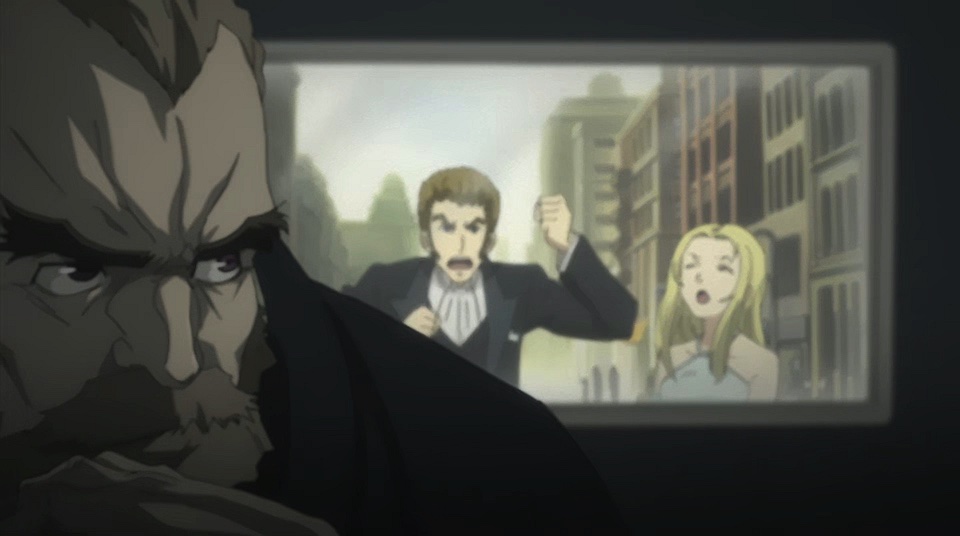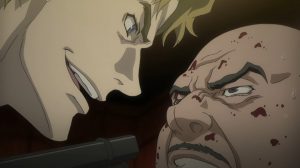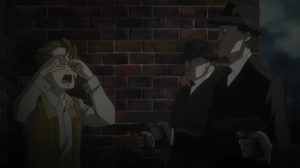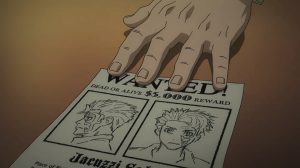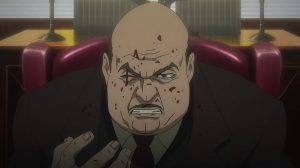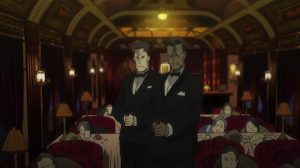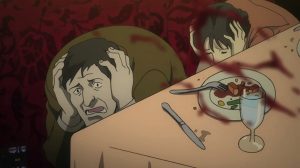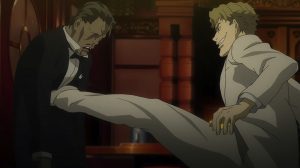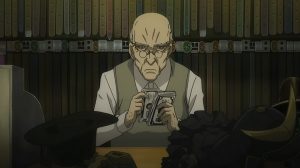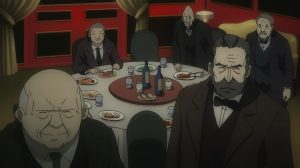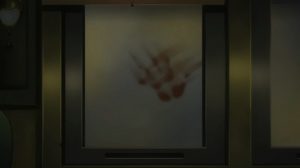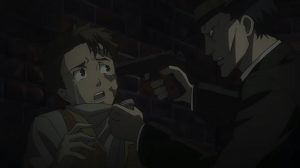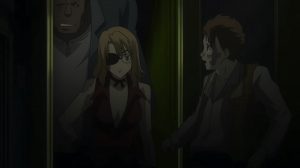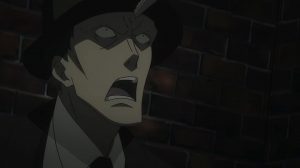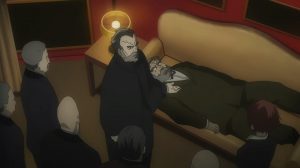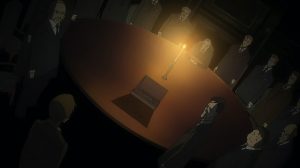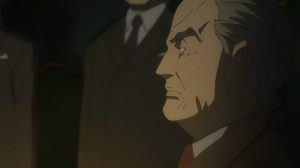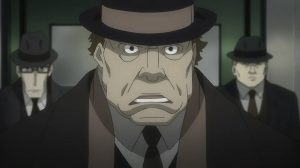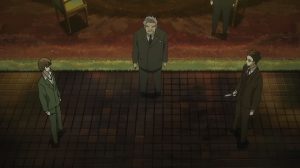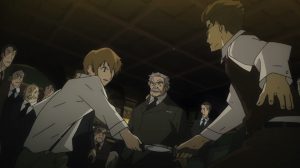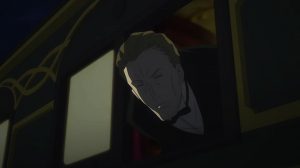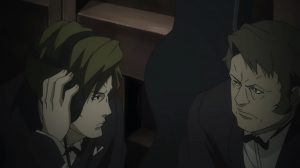Tonal contrast is a powerful narrative weapon in the right hands, no question about it. And based on Baccano you’d have to say Narita Ryohgo and Oomori Takahiro are the right hands, because this series is all about it. Nobody represents that better than Ladd Russo and Isaac and Miria, who tend to be featured in consecutive scenes for that very reason. And I can’t help but think this is the sort of thing that’s much more impactful in the anime version.
For Narita to have started syndication on this series when he was only 23 is pretty remarkable, considering how savvy it is about the pop culture tropes (both American and Japanese) it satirizes. Then again it’s a rush as much as anything, especially in this form – a triumph of pure runaway train energy. Ladd is a scene-stealer whenever he appears, a sadistic and psychotic force of nature. Even something as off the wall as his threatening to pop his uncle (who certainly deserves no sympathy) just because of the raw unpredictable insanity of the man. You just never know what he’ll do.
The scene in the dining car is Baccano at its most ruthless. Ladd’s murderous beatdown of one of Huey’s black suits just seems to go on forever, to the point where you’re begging for it to be over and then past that, to where you’re just numb. Indeed, we have two separate criminal organizations with designs on the same train here, Ladd’s white suits (which despite talk of kidnapping is really just an excuse for an orgy of violence), and the black suits (clearly connected to the immortality angle). Actually there are three, because Jacuzzi’s man is about to spring his trap too – but he wisely excuses himself when he sees how vastly outgunned he is.
We also get a much deeper glimpse into that immortality angle, with the appearance of Szilard Quates – Barnes’ boss, and apparently the oldest of the immortals (his aide Ennis jokes that he’ll never trust anyone when he says he doesn’t trust anyone younger than him). Ennis, according to Quates, is a homunculus (one capable of sophistry, much to his irritation). Quates then turns around and devours Barnes in order to possess his memories – though Barnes was not guilty of the crimes Quates suspected him of.
All in the all the 5th episode is the series best so far, a spellbinding 22 minutes that seems to pass in about 5. By now the narrative method at play here has become obvious – the spotlight is shifting from character to character and group to group until everyone gets their turn, with Isaac and Miria as the Greek chorus. This time around Jacuzzi gets his turn, and another stranger than life example is he. A crybaby of the highest order, yet at the head of the Juveniles – who seem to be the most deadly and feared gang of them all, even rampaging at will in the territories of the major crime families.
I can’t forget the wonderful scene where Firo (who seems to be about the closest thing to a “normal” person in this bunch) is initiated into the Camorra. Amidst all the outlandishly fantastical sequences in this episode the organized crime stuff is incredibly grounded and realistic – one could very easily imagine this scene playing out exactly the same way in the real world of prohibition America. Again, it all comes back to tonal contrast – and Baccano is a flat-out master of it.


